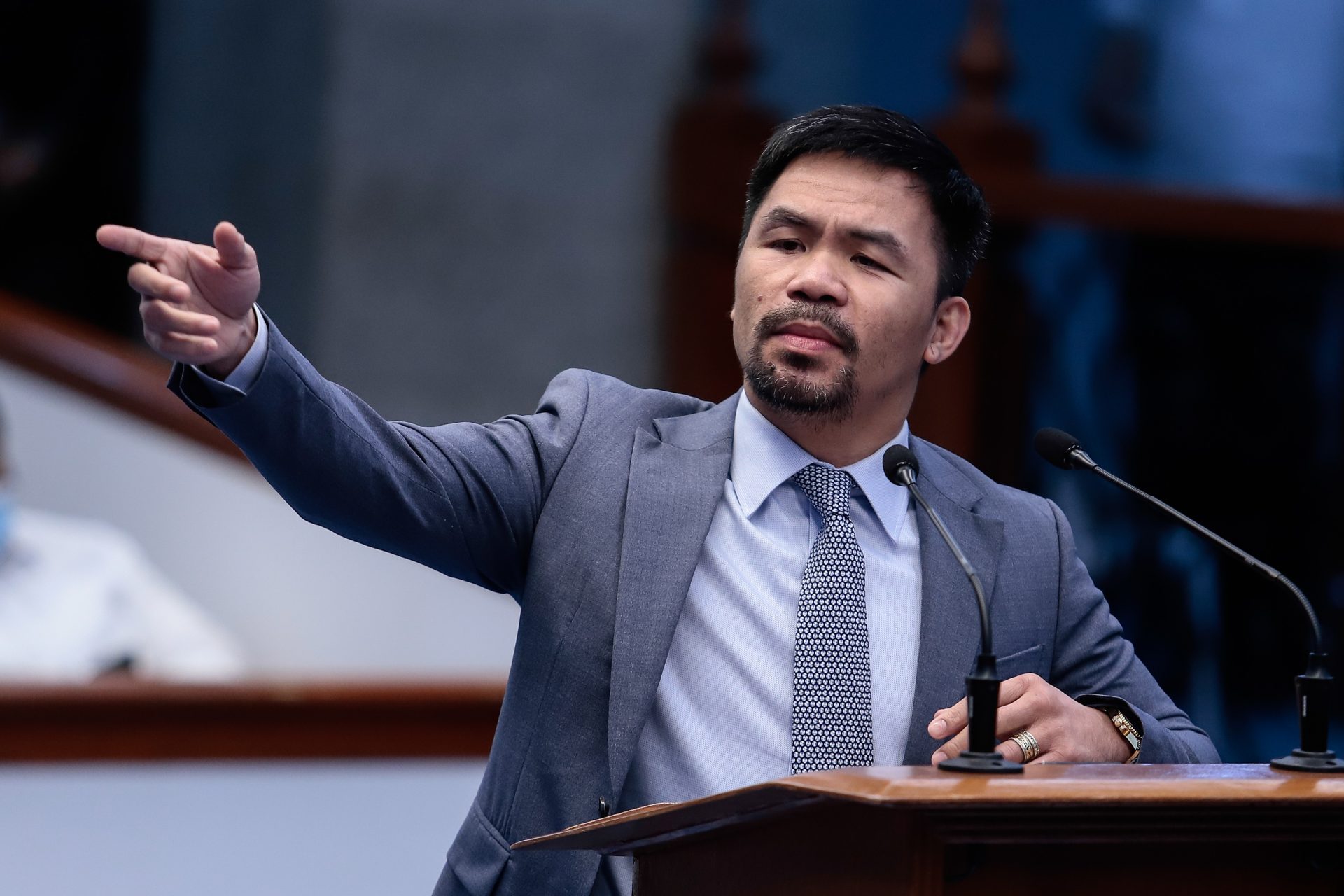Boxing champ Manny Pacquiao, a sitting Philippine senator who is running for president in next year’s national elections, backtracked on his position to revive the death penalty in the predominantly Catholic country.
“About the death penalty, before, I filed a bill in the Senate,” he said a Vice News Asia interview quoted on an Inquirer report. “But right now, I’m just holding it. I’m not pushing right now because of the situation of this country,” he said.
“I don’t want… innocent people [to] be punished by death. So we want to fix first our judicial system in this country and arrange everything and make sure that the government is performing their duty,” added Pacquiao.
The boxer, a born-again Christian, has been an advocate of the revival of capital punishment for heinous crimes, including the manufacture and sale of illegal drugs.
On Saturday, Pacquiao was quoted in another news article saying that only convicted plunderers and drug traffickers deserve the death penalty.
He said the problem of corruption in the country is worse that the drug problem.
“This is the real cause of poverty,” he said in Filipino. “We will punish them and give back their ill-gotten wealth to our people,” said Pacquiao.
He said that if elected president next year he would push for wide-ranging reforms on law enforcement, prosecution, and the judiciary.
“We should fix the three pillars of our justice system so that we will only punish those who are really guilty,” he said.
On June 24, 2006, the Philippines abolished capital punishment.
Months before the passage of the law that ended the imposition of the death penalty, former president Gloria Arroyo issued a moratorium on carrying out capital punishment.
In April 2006, the Philippines commuted the sentences of some 1,230 death row inmates to life imprisonment – the largest ever commutation of death sentences, according to Amnesty International.
In his State of the Nation Address in July last year, President Rodrigo Duterte asked Congress to pass a bill that will reinstate the death penalty by lethal injection for drug-related crimes.
Pope Francis, in his later encyclical titled “Fratelli tutti,” said the “death penalty is inadmissible and the Church is firmly committed to calling for its abolition worldwide.”







